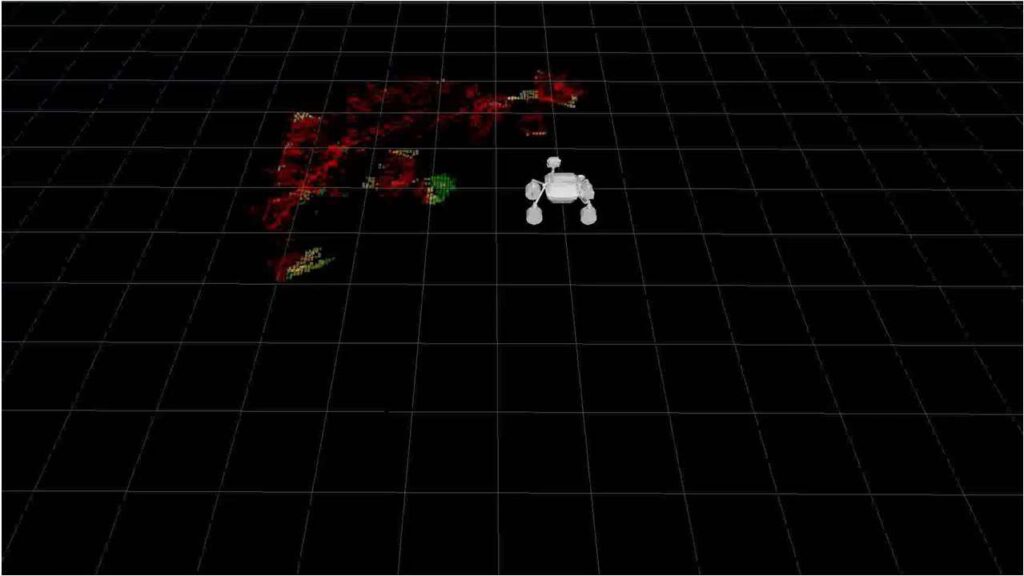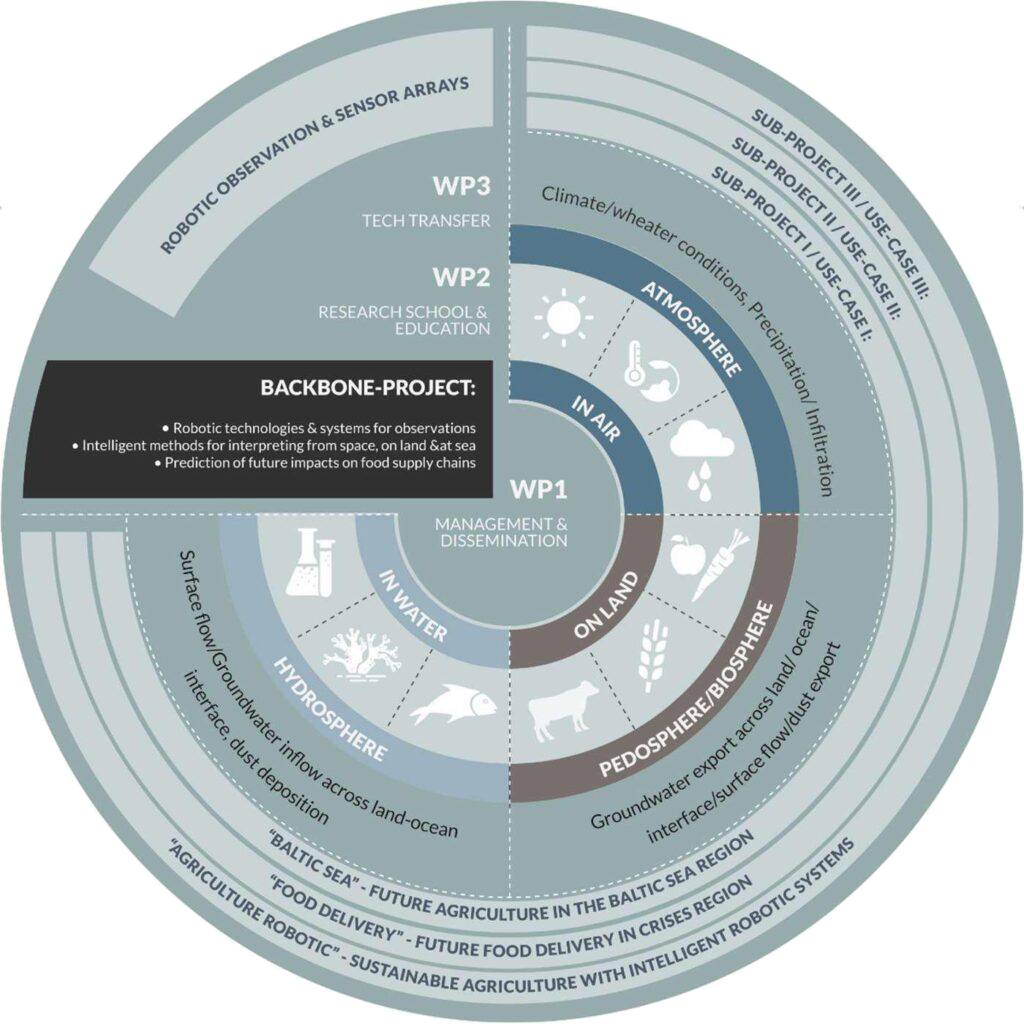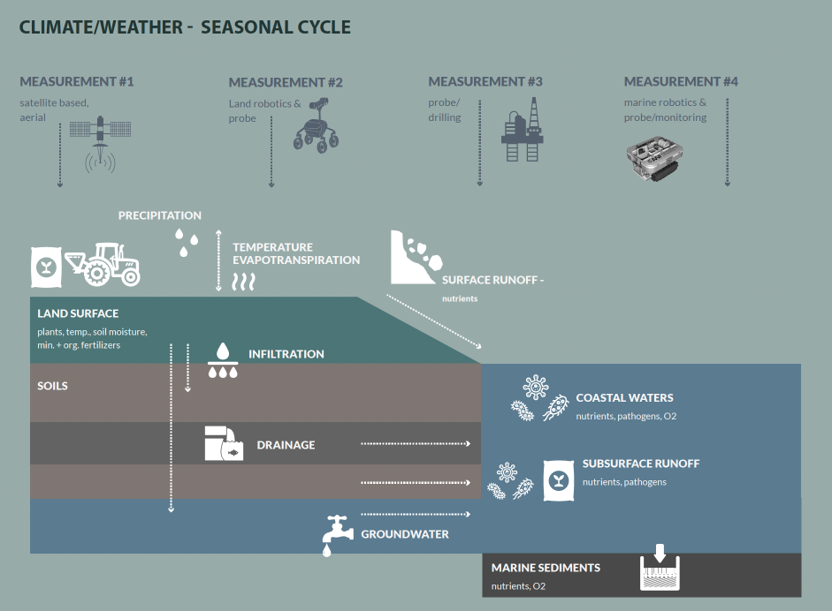The iFOODis consortium is working on data collection networks to extend the impact and content of food production forecasting, ensuring more sustainable food production value chains using robotic methods and technologies that are, in principle, transferable. Furthermore, iFOODis is focusing on pushing boundaries in robotic core technologies to enhance remotely supervised robotic assets, to operate in a highly autonomous manner within a cooperative team over long periods and large areas, to safely, reliably and robustly acquire local data. These core technologies are highly transferable into several different application domains.
The sustainable value chain is reflected in iFOODis in several formats and forms, starting with the consortium’s implementation of the value chain throughout the food cycle. The overall more sustain-able food and environmental use of our coastal areas, which is a key habitat as well as highly relevant for food production for us humans, is at the forefront of sustainability. More diverse, small-scale and sustainable management seems to be a key here.
Furthermore, sustainable can also be understood as economic, which is why the use of “low-cost” automatic systems can be considered a possible key role for the future agricultural economy in the sense of a “sustainable value chain”. Only through the use of low-cost small machines can it be possible to offer a financially and economically viable alternative to the already highly automated agricultural land management, which is currently focused on large and heavy machinery.
In order to set the justified action of recording the actual situation in this worthy circle, however, be-fore the right action, the focus in the iFOODis project is placed on the “Situation Awareness” in order to capture a sustainable and provable picture and understanding of the actual situation over time and in many places in detail.
Looking at the whole food cycle, it is clear that among the challenges our world population will face in the coming years, automated and assistive robotic technologies will benefit the sustainability, efficiency and economy of food production, processing, transport, distribution, recovery, storage and disposal.
The iFOODis idea is to perceive and interpret the data of food production cycles in a modern way. The goal of the consortium for now is to generate a basis for decision-making that originates from acquired data, compared to using robotic technologies to act directly. Regarding this task, the main stakeholders are governmental organizations. Therefore, it is planned to include the following institutions in the project accompanying work group.

iFOODis will demonstrate the benefit of AI driven robotic assets for sustainable food cycles
application-related domains:
with simultaneous localization,

Backbone Project with overarching WPs
for one main and two transfer use cases:



Products / Transfer:
data base (real-time data access)
technologies
management



Quantification of exchange between the atmosphere, land and water bodies affected by agricultural activities considering major exchange pathways such as aeolian dust export, soil emission of greenhouse gases, groundwater discharge or water drainage


This Activity is cross-funded by DLR and the Bavarian Ministry for Economic Affairs. projekt-ahead.de
